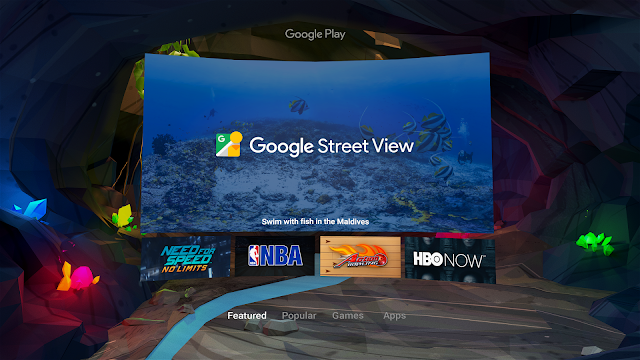Google Is Working On A Virtual Reality Version Of Chrome For Android Devices
Google Is Working On A Virtual Reality Version Of Chrome For Android Devices
Google wants the totality of the internet to be explorable in virtual reality, and it's in progress using its mobile Chrome browser to make that happen. The newest beta and developer versions of Chrome for Android contain support for the open source WebVR standard, reports Road to VR. The dev version also creates mention of a "VR Shell" feature that, in the future, will allow mobile device headsets to browse any website regardless of whether it uses WebVR.
The latest builds of Google Chrome Dev and Google Chrome Beta on Android bring two main new features for making this a reality. Now Chrome Beta covers a WebVR setting which allows enhanced VR device compatibility with VR websites made against WebVR standards. Chrome Dev now contains a ‘VR Shell’ setting which Google’s Chromium Evangelist François Beaufort says“ enable a browser shell for VR” which “permits users to browse the web while using Cardboard or Daydream-ready viewers.” Both selections are presented in the browser’s Flags page, accessed by entering chrome://flags in the URL bar.
François Beaufort, Google's Chromium evangelist, recently publicized that the Chromium team is just getting started, and is employed on a number of features to bring VR to the web. Declared at Google I/O 2016, Daydream is Google’s major approaching virtual reality platform, which is made on top of Android Nougat and will house VR apps for Android.
WebVR is a JavaScript API that supports facilitate the creation of VR-ready websites. The problem, up until now, is a shortage of support for the rest of the web. That means going from a WebVR-supported site to a standard one includes removing our VR headset.
“Today I can view a WebVR scene on an iOS [device], even if Mobile Safari doesn’t support WebVR API, thanks to a polyfill + device accelerometers. Which is awesome. The web’s got reach,” he explained. “What the WebVR API gives us on top of that is much richer ecosystem support, things like link traversal between WebVR experiences without dropping out of VR mode, and more.”
Last year Samsung announced a VR browser for their Gear VR headset which achieves similar functionality but is not accessible to the wider Android ecosystem. As the established version of Chrome on Android has been downloaded between 1 – 5 billion times, it stands to bring VR web browsing to a much bigger group. Google is also in the development of Chrome support for headsets like the Oculus Rift and HTC Vive on the desktop.








0 comments:
Post a Comment